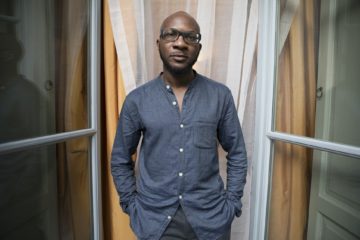 Cora Currier in The New Republic:
Cora Currier in The New Republic:
Each thing has its shadow: the name of the baroque painter Caravaggio, which reads “like two words conjoined”—the painterly technique of chiaroscuro and braggadocio, or boastfulness; the Danish philosopher Ludvig Holberg and the slave ships he invested in; Rilke’s famous poem about a caged panther and his less-known, startlingly racist verses about caged Ashanti people. In his new essay collection Black Paper: Writing in a Dark Time, the Nigerian American novelist and critic Teju Cole explores the flickering of light and shadow in photography, classical music, painting, and literature, and applies the same theme to elegies for departed friends, artists, and intellectuals, and the kind of rambling but penetrating meditations on cities that have characterized his novels.
Largely focused on photography (Cole is a photographer himself and frequent photography critic), these essays also encompass migration, the history of slavery, Trump’s presidency, “African” as an identity, and the movie Black Panther. Cole often goes to places where the conventional connotations of light and dark reverse: the harsh, cheapening, glare of photography, for instance, in moments when the camera is unwelcome or the instant he discovers the Sesotho word serithi, which can mean “shadow” but also “aura,” “dignity,” “presence,” or “confidence.” The word black, with all its shades and connotations, provides a through line in what might otherwise be an impossibly abstract conceit for a book. The title refers to the making of carbon copies, where “black transported the meaning” from page to page; Cole is intent on finding meaning in the dark. These things shadow Cole’s work: the exclusion of people from nations and from personhood and the sense that art cannot possibly do enough. What lights his way is his certainty that, on occasion, it can.
More here.
